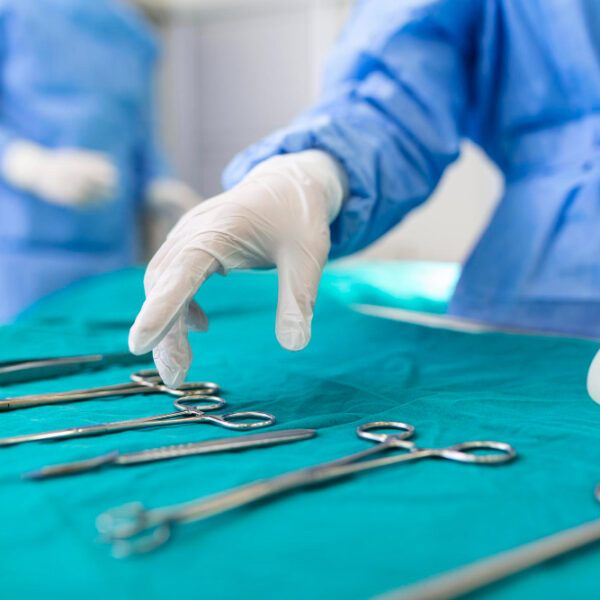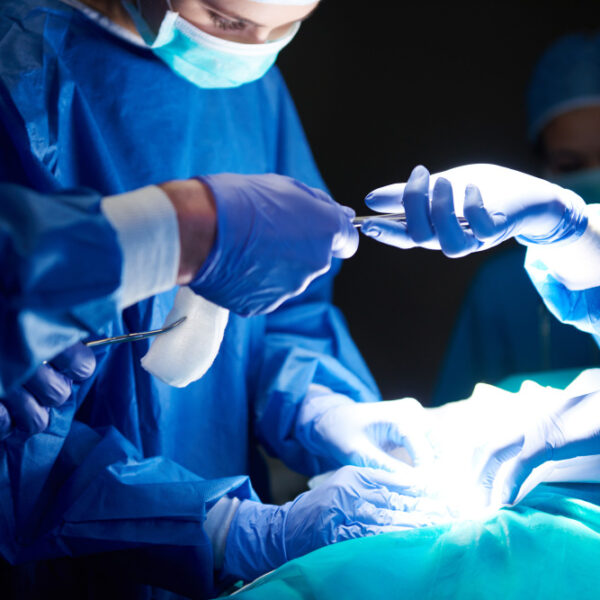The Department of Orthopaedics will comprise a dedicated team of professionals, including consultant surgeons, house staff, nurses, physiotherapists, occupational therapists, social workers, pharmacists, and other paramedical staff. The department will collaborate closely with our neurosurgery, plastic surgery and physiotherapy departments as needed. The department will offer comprehensive provision and/or access to the following services.
Outpatient department (OPD) services
The outpatient department will offer regular, affordable eye care consultations, including outreach programmes through free health camps in neighbouring areas. Mobile OPD services and teleconsultation options will further extend our reach. Specialised OPD clinics will address specific orthopaedic conditions.
Inpatient department (IPD) services
Comprehensive inpatient services will deliver extensive, personalised care under the supervision of expert consultants. Admission options will accommodate self-paying patients, individuals covered by government health schemes (such as Swasthya Sathi and Ayushman Bharat), and those with private health insurance. Accommodations will include ICUs, HDUs, general wards, and private cabins based on individual needs, and the department will be equipped with advanced ventilator systems and cutting-edge equipment (e.g., advanced monitors, defibrillators, injectors, and laminar airflow systems) will support our care. Our critical-care units will feature state-of-the-art smart hospital beds.
Investigation services
The department will provide 24/7 haematology and orthopaedic investigation services, including digital chest X-rays, CT and MRI scans, and a bone densitometry laboratory. Other specialised facilities will include a bone and tissue bank for allograft supplies, a therapeutic tissue engineering laboratory, and a motion & gait analysis laboratory.
Operating theatre (OT) and intervention services
Dedicated modular OTs will support a range of modern orthopaedic surgeries with advanced equipment. All joint replacement and spinal procedures will take place in OTs equipped with the laminar-airflow technology, and joint replacement surgeons will use body exhaust suits to further minimise infection risk. The operating suite will feature an integrated computer-assisted surgery platform with a ceiling-mounted camera for tracking instruments and connecting to a communications platform for various software applications. Key interventions will include the following.
- Advanced cartilage surgeries
- Bone-fracture surgeries
- Arthroscopic surgeries
- Artificial disc replacement
- Autologous chondrocyte implantation
- Removal of benign tumours
- Removal of bone and soft-tissue tumours
- Spine surgeries
- Cryotherapy for bone tumours
- Joint-replacement surgeries
- Alleviation of neck pain
- Surgical correction of scoliosis
- Sports-injury management
- Regenerative medicine using stem cells
- Reconstructive orthopaedics using the Ilizarov technique
Paediatric services
Our department will provide specialised paediatric orthopaedic care for neonates through older children, covering OPD, IPD, laboratory, and interventional services. Key procedures, facilities and services will include the following.
- Correction of congenital deformities of the limbs
- Removal of benign tumours
- Correction of dysplastic & dislocated hips
- Treatment of fractures and dislocations
- Surgical correction of scoliosis and other spine deformities
- Management of neuromuscular conditions (e.g., cerebral palsy, spina bifida, muscular dystrophy)
- Paediatric orthopaedics and trauma care
- Paediatric rehab (adaptive) seating
- Combined spina bifida clinic
- Combined paediatric rheumatology clinic
- Combined bone clinic
- Bone mineral density scanning for osteoporosis
- Gait & motion analysis laboratory
- Prosthetics & orthotics laboratory
Research & development (R&D)
Ours will be a deemed university and/or national examination board-affiliated Department of Orthopaedics. R&D will focus on translational research, with the goal of accelerating the transition of innovative therapies from the laboratory to clinical application, thereby enhancing patient outcomes with the latest advancements in orthopaedics. Our surgeons will lead research on cutting-edge treatments, with a strong focus on biologic bone substitutes and stem cell therapy.
Education
Education will be integral to our mission, with regular workshops & courses dedicated to advanced interventional techniques. We will offer continuing medical education (CME) programmes for family physicians, including guest lectures and updates. Community symposiums will also be held to increase public awareness on eye health, preventive care, and the importance of timely medical intervention. In the future, we plan to introduce the Diplomate of National Board (DNB) course and different paramedical courses in adult & paediatric orthopaedics.
Fast Checkup
We providing quality healthcare services to our community
Medical Experts
We providing quality healthcare services to our community
24/7 Services
We providing quality healthcare services to our community


